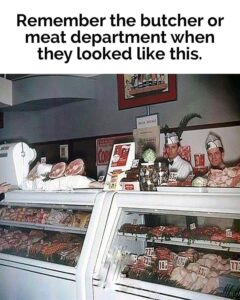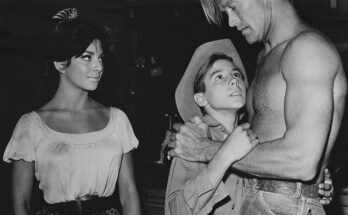In a small town nestled between rolling hills and whispering forests, there stood a quaint little butcher shop. Its weathered exterior bore the marks of time, but within its walls, a world of savory aromas and bustling activity thrived.
Once you stepped through the creaking wooden door, you were greeted by the sight of polished countertops adorned with gleaming knives and scales. Rows of neatly arranged cuts of meat stretched out behind the glass display, tempting passersby with their rich hues and promises of gastronomic delights.
Behind the counter, the butcher himself was a figure of authority and skill, his white apron stained with the evidence of his craft. His hands moved with practiced precision, deftly slicing through thick slabs of beef or expertly deboning a chicken. His knowledge of cuts and meats was legendary in the town, and customers often sought his advice on the perfect roast or the juiciest steak.
The meat department was not just a place of commerce; it was a hub of community life. Regular patrons would linger, swapping stories and recipes while they waited for their orders to be filled. Children would peer wide-eyed at the array of meats, their imaginations running wild with visions of grand feasts and adventurous meals.
In the days before mass production and supermarkets, the butcher shop was more than just a place to buy meat; it was a cornerstone of the neighborhood, a place where relationships were forged over shared love of food and tradition.As time passed and technology advanced, the quaint butcher shop gradually gave way to larger supermarkets and chain stores. The polished countertops and gleaming knives were replaced by sterile aisles and impersonal packaging. But for those who remember, the memory of the bustling butcher shop lives on, a testament to a simpler time when the local butcher was not just a purveyor of meat, but a pillar of the community.


